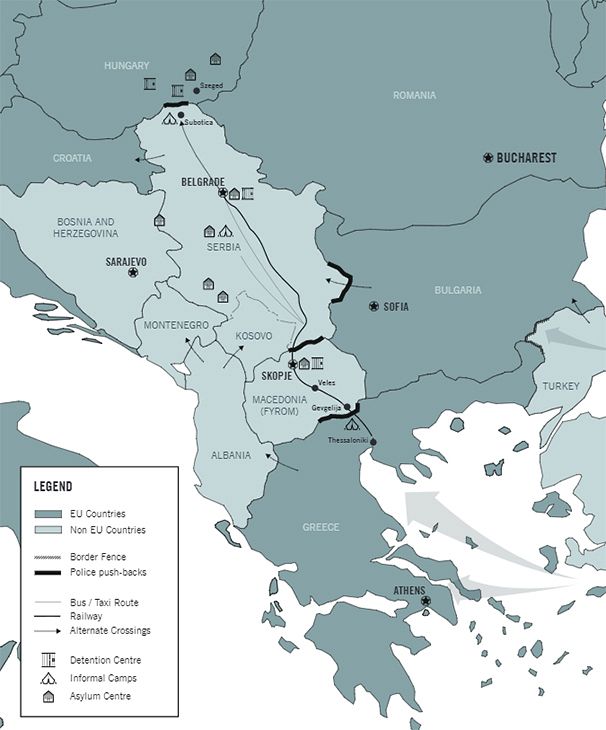Currently he is traveling through the countries on the border between the two continents. Arriving from Tehran and on his way to Baku, Macaes was a guest of the Germia Hill conference, a small international gathering in Pristina last week, where he advanced the following thesis: “Maybe Western and Central Europe is now converging with the Balkans, but it should be the other way around.”
The word “balkanization” has been trotted out quite often in the vocabulary of international relations for some time. The reason is that the Balkans look even more overburdened with historical conflicts than our good old Central Europe.
But now most of the Balkan peninsula (the western Balkans in euro-jargon for the former Yugoslavia plus Albania) is again a key region for European security as fearful politicians watch the oncoming stream of migrants through those countries.
And Central European post-communist politicians are much more eager than their more politically correct Western colleagues to help Balkan countries build a wall against the tide, which they see as a surprisingly robust threat to European unity.
Balkan countries like Macedonia, Serbia, Kosovo, and Albania are in a delicate situation.
Over the years they have been promised membership of the European Union and NATO as a reward for their reforms. But quite often they lack basic, independent public institutions and are not able to offer their citizens a decent standard of living.
It is almost forgotten that last year’s refugee wave started in January and February with approximately 50,000 Kosovans traveling through Hungary to Austria, Germany, and Switzerland, seeking the better life enjoyed by hundreds of thousands of their relatives already there.
But now Kosovo and other Balkan countries are declared to be safe – allowing Germany and other countries to send back their failed asylum seekers – and furthermore, they have become partners in the task of protecting the EU, which is again exporting its need for security somewhere else instead of facing the challenge head-on.
Three billion euros to Turkey is a big and very visible package of aid to help dampen the refugee crisis, while Balkan smugglers in Macedonia or Albania are already preparing for big business and EU flags are nowhere to be seen there when it comes to managing the massive influx of people.
EU members are helping Macedonia and other post-Yugoslav countries on a bilateral basis, sending equipment and police and hoping it will be enough to stop the nightmare.
During the debates in Pristina last week it was clear that the Balkan countries, with all their flaws and instability, are well aware that the situation could be dangerous for them as well.
Elections are coming up this spring in Serbia and Macedonia. If Europe closes its borders – as some Central European EU member states (and some German politicians) counsel – migrants would begin to back up in those countries. In that scenario it would be only a matter of time before the migrant issue became ripe for misuse during the electioneering.
According to Donald Tusk, the president of the European Council, the EU has only until March to solve the refugee issue before the Schengen passport-free area collapses.
Kosovo and Bosnia are coping with domestic Islamic radicalization and the whole region is watching as the security vacuum left in the Balkans by the West in the last few years is filled by Turkey and its more or less visible presence.
Bruno Macaes’s view on the balkanization of Europe includes one delicate element: The EU’s ability to act is paralyzed not only by its own political fragility and complexity, but also by the frequently fallacious use of politically correct language.
The old members are accusing the new ones and prospective Balkan incomers of rising xenophobia and nationalism – thus helping to re-create the old East-West divide – at the same time as they team up with the authoritarian Turkish president. With Turkey being a long-time EU membership candidate, post-communist politicians might feel that double standards are being applied.
The collision of these two contradictory and hypocritical approaches could occur in the fragile states of the (western) Balkans. That could prolong and deepen the political stalemate in Macedonia between government and opposition or endanger the functioning of the new war-crimes tribunal in Kosovo.
This divisive European approach is not a new one. We saw it applied during the wars in Croatia, Bosnia, and Kosovo 20 years ago. Those conflicts were decided by the involvement of American realpolitik, not by Europeans. And we now witness again the same European blindness towards reality on the ground.

No comments:
Post a Comment